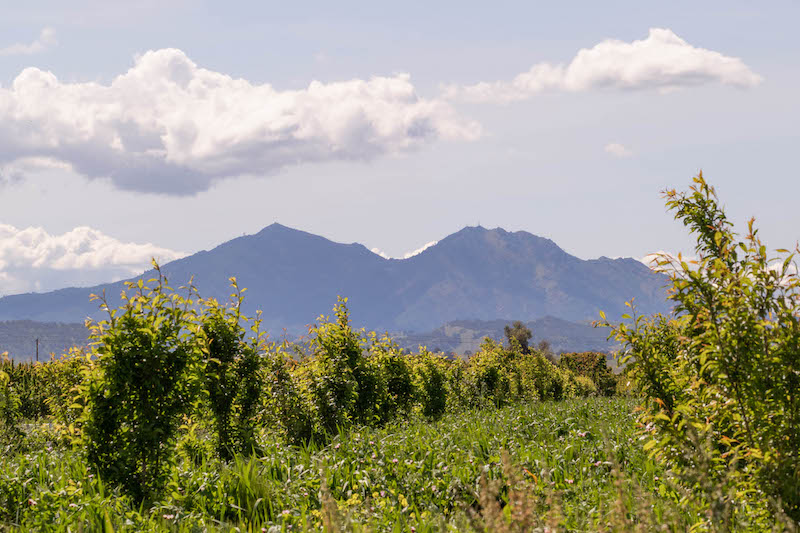What Happens to Our Old Coffee Grounds?
This Earth Day, we're sharing the love.
A History of Sustainability
Sustainable coffee production has been a Blue Bottle value since we were selling roasted beans out of the trunk of a Peugeot station wagon. But even we didn't think much of it when we began sharing our coffee grounds with Frog Hollow Farm, an old Ferry Building neighbor.
"Back then, we composted all of our own coffee grounds, like we compost all of our cafe waste, and at first they were only taking some of our surplus," says Gilman Brewery Leader Elias Perez. Once we got them larger compost bins, however, Frog Hollow (which has the distinction of being the first cafe where Blue Bottle coffees were served) was able to take even more.
"There was never a point where they said, 'That's too much,'" laughs Elias.
Introducing the Blue Bottle Coffee Gilman Brewery
The recent opening of our Gilman Brewery means that our delicious Cold Brew now has a devoted production facility. From now on, we'll able to continue spreading the love with our coffee grounds, but on a much bigger scale than ever before.
"We're producing four-thousand pounds of coffee grounds per week right now, and we're expecting to eventually produce almost two times that," says Elias. He's looking ahead to the summer months, when people will begin adding more refreshing Cold Brew to their coffee routine, but even at Gilman's slowest, "We still have a lot to share."
At the moment, Gilman's crew of six produces an impressive 750 cases of Cold Brew on one day out of the week—which means that at nine-thousand cans, they're still only scratching the surface of what they're capable of. Between them, the demanding process of brewing, canning, boxing, and shipping is accomplished with the speed and synchronicity of the machines with which they work.
Even though many Blue Bottle fans have come to love making their own cold brew at home with the Blue Bottle Cold Brew Bottle, more and more will be grabbing our canned Cold Brew as the days get warmer. The Gilman Brewery will only continue to pick up steam, but Elias is relieved to know that our waste will never be wasted.
A Rich Partnership
Located in Brentwood, California, about forty minutes away from the Gilman facility in Berkeley, Frog Hollow Farm is a certified organic wonderland of fruit trees and heirloom tomatoes that is always experimenting with new crops in its now-legendary soil. As committed to land stewardship and deliciousness as Blue Bottle is, Frog Hollow's hand-tended produce is nourished in part with compost created with our coffee grounds—and we couldn't be more proud.
"It's a great partnership to have right now," says Elias. "We'll soon be buying them more bins so they can take even more of our compost."




